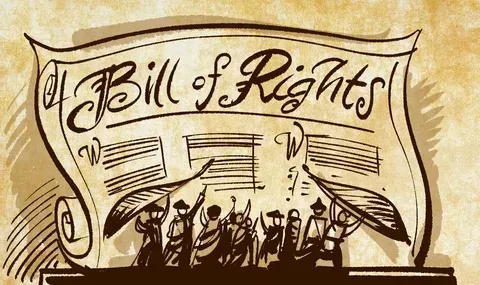Grandparent Visitation Rights in NJ

By New Jersey Attorney Samuel D. Jackson, Esq.
In New Jersey, grandparents face an uphill battle in persuading the courts to award them visitation rights. As in any custody or visitation decision, when determining whether to award visitation to the grandparents of a child, the court will be guided by the “best interests of the child” principle. N.J.S.A. § 9:2-4(c); Hand v. Hand, 391 N.J. Super. 102, 105, 917 A.2d 269, 270 (App. Div. 2007) (“In custody cases, it is well settled that the court's primary consideration is the best interests of the children.”) However, the court will still apply the relevant statute and governing case law in making such a decision.
The relevant statute here is N.J.S.A. 9:2-7.1, or the “Grandparent Visitation Statute,” which permits a grandparent or sibling of a child to request visitation time. Section (b) of this statute sets forth the following eight factors for the court to consider in determining whether to award visitation time to a grandparent:
(1) The relationship between the child and the applicant;
(2) The relationship between each of the child’s parents or the person with whom the child is residing and the applicant;
(3) The time which has elapsed since the child last had contact with the applicant;
(4) The effect that such visitation will have on the relationship between the child and the child’s parents or the person with whom the child is residing;
(5) If the parents are divorced or separated, the time sharing arrangement which exists between the parents with regard to the child;
(6) The good faith of the applicant in filing the application;
(7) Any history of physical, emotional or sexual abuse or neglect by the applicant; and
(8) Any other factor relevant to the best interests of the child.
One factor that can help a grandparent is if that grandparent was previously the full-time caretaker of the child. N.J.S.A. 9:2-7.1(c). However, the reverse is also true, since the Appellate Division has held that the Grandparent Visitation Statute is inapplicable when the grandparents have no prior relationship with the child. Wilde v. Wilde, 341 N.J. Super. 381, 386 (App. Div. 2001).
Importantly, demonstrating that visitation with the grandparent would be in the best interests of the child by satisfying the statutory factors above is no longer enough for the grandparent to prevail in court. The United States Supreme Court in Troxel v. Granville, 530 U.S. 57, 120 S.Ct. 2054 (2000) struck down a grandparent visitation statute that only required the grandparents show that visitation was in the best interests of the child, on the grounds that it was overboard and an infringement on parents’ fundamental due process rights to raise their children. New Jersey courts have since applied this ruling by imposing additional requirements on grandparents seeking visitation with their grandchildren, beyond the statutory factors and ‘best interests’ analysis described above.
Currently, to prevail in a visitation hearing in New Jersey courts, grandparents are required to show not only that visitation would be in the best interests of the child, but that denial of visitation with the grandparent would actually cause harm to the child. Moriarty v. Bradt, 177 N.J. 84, 88 (2003). The petitioning grandparent must overcome the court’s legal presumption in favor of parental decision-making (including the decision to deny that grandparent visitation rights) by making an initial, or prima facia, showing of harm to the child if the visitation request is denied. Rente v. Rente, 390 N.J. Super. 487, 494 (App. Div. 2007).
Overcoming this presumption is difficult, because it requires the grandparent to demonstrate that that denying visitation would “wreak a particular identifiable harm, specific to the child.” Mizrahi v. Cannon, 375 N.J. Super. 221, 234 (App. Div. 2005) (“Conclusory, generic items, such as ‘loss of potential happy memories’, are not a sufficient basis to warrant such an intrusion into a parent’s decision making.”) This “particular identifiable harm” has to be more substantial than merely depriving the child of a loving relationship, even though such deprivation may cause some harm. Daniels v. Daniels, 381 N.J. Super. 286 (App. Div. 2005). The case of Major v. Maguire, 224 N.J. 1 (2016) may be instructive in showing what a grandparent must allege to establish a prima facie showing of harm as required by Moriaty. In Major, the grandparents successfully alleged that their alienation from their granddaughter would cause her harm, since they were the only living relatives on that side of the family following the death of her father, they had been a consistent presence in their granddaughter’s life since her birth, and they had such a close relationship with her that she would suffer harm her if it was disrupted. Id. at 27.
By far, the easiest and most certain way for a grandparent to establish visitation rights is for the parents to include such a provision in the custody order. As mentioned above, there is a legal presumption that the court will favor the custody and visitation decisions made by the parents. However, if the parents do not agree, then to prevail, it will be necessary for the grandparent to show that the child will suffer some specific harm if the visitation is denied.
If you are a grandparent seeking to establish visitation time with your grandchild, or if you are a parent seeking to prevent a troublesome grandparent from forcibly intervening in your child’s life, the experienced attorneys at Lento Law Group can help you maximize your chances of success in court, by helping to identify the aspects of your particular situation that most closely align with these and other relevant cases that the New Jersey courts are required to follow. Call 1-833-LENTO-LAW –– that’s
More News & Resources











